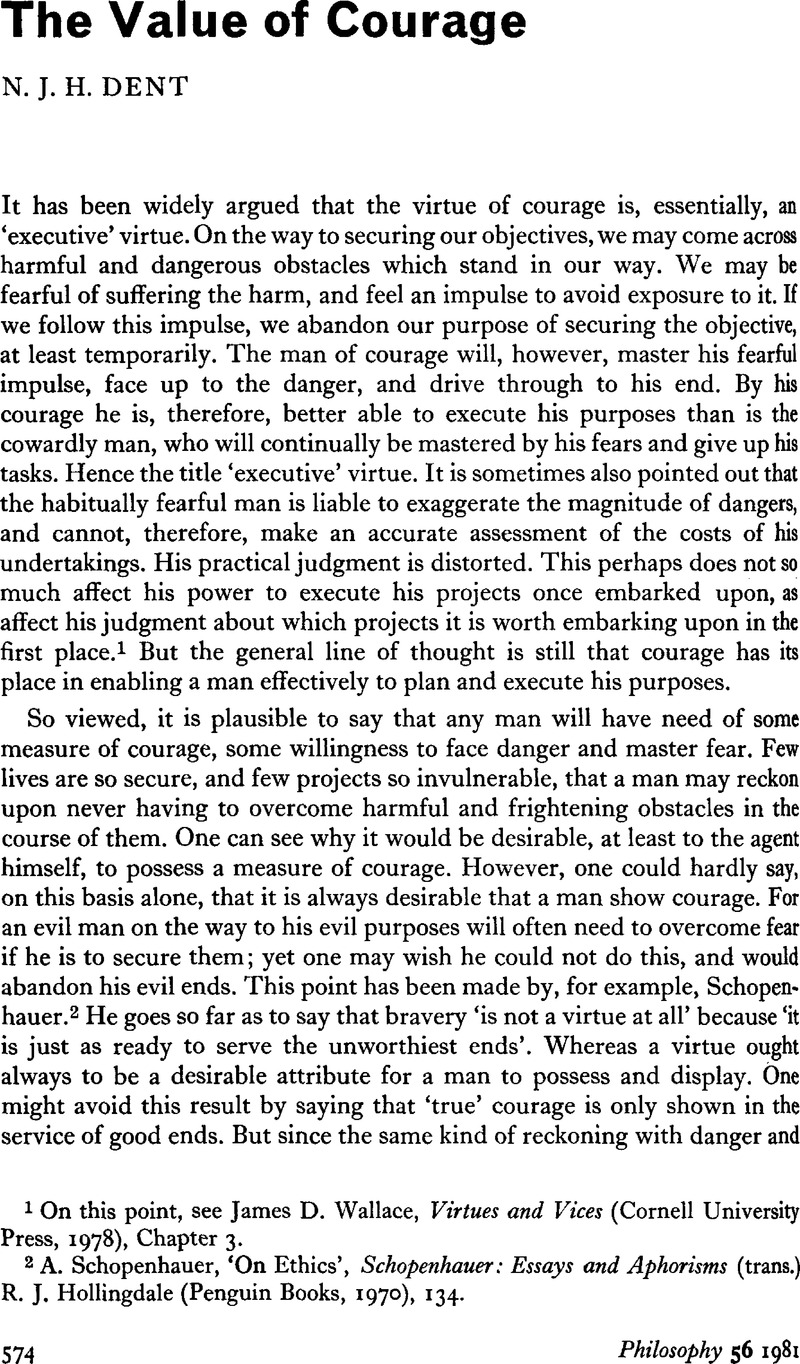Published online by Cambridge University Press: 30 January 2009

1 On this point, see Wallace, James D., Virtues and Vices (Cornell University Press, 1978)Google Scholar, Chapter 3.
2 Schopenhauer, A., ‘On Ethics’, Schopenhauer: Essays and Aphorisms (trans.) Hollingdale, R. J. (Penguin Books, 1970), 134Google Scholar.
3 Susan Mendus has pointed out to me that vir is often used in place of homo in a way that already emphasizes the manly excellence of a man. We also have this evaluatively loaded use of the word ‘man’ as in ‘You're not a man, you're a mouse’; or in the injunction to the faint-hearted ‘Be a man!’
4 Aristotle, Nicomachean Ethics, Book 3, Chapter 6 ff. Pears, D. F. discusses the relations of courage and confidence quite fully in his ‘Aristotle's Analysis of Courage’, Midwest Studies in Philosophy III (1978)Google Scholar. But he never really explains why confidence should get involved in the account in the first place.
5 SeeJulius Caesar, Act 2, Scene 2:
Caesar: The gods do this in shame of cowardice: Caesar should be a beast without a heart If he should stay at home to-day for fear. No, Caesar shall not; danger knows full well That Caesar is more dangerous than he: We are two lions litter'd in one day, And I the elder and more terrible: And Caesar shall go forth.
Calpurnia: Alas! my lord, Your wisdom is consum'd in confidence.
I owe this reference to Susan Mendus.